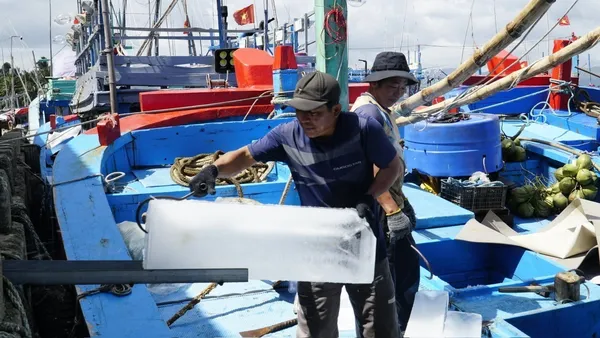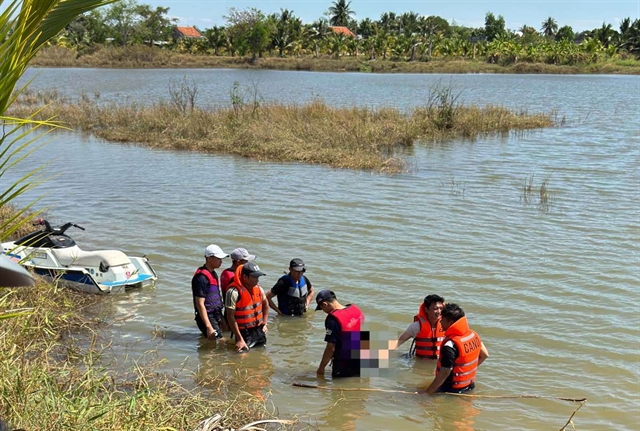 World
World

India and Canada rallied their pro-globalisation allies at the Davos business summit Tuesday as delegates braced for a potentially combative appearance by US President Donald Trump later in the week.
DAVOS, Switzerland — India and Canada rallied their pro-globalisation allies at the Davos business summit Tuesday as delegates braced for a potentially combative appearance by US President Donald Trump later in the week.
Kicking off the World Economic Forum’s annual gathering, Indian Prime Minister Narendra Modi and Canada’s Justin Trudeau defended free trade in the face of Trump’s protectionist "America First" policies.
Having vowed to overhaul international trade agreements to protect US jobs, Trump is expected to appear at the Swiss resort on Friday to face the same economically liberal elites he ridiculed while running for office.
Trudeau also demanded radical action to strengthen women’s rights -- another issue on which Trump has shocked his opponents.
Trump will fly into a forum also buzzing with discussions about fighting harassment and gender inequality.
In Switzerland’s financial centre Zurich, more than a thousand people, including anti-globalists, protested on Tuesday night against the US leader’s visit with banners reading "Trump not welcome" and "Smash WEF".
After spectacular snowfall that stranded some high-flying delegates on the road to the Swiss ski resort, the forum began, basking in robust global growth but facing warnings that the world’s have-nots are missing out more than ever.
In the main opening address of the gathering, Modi acknowledged that globalisation is "losing its lustre" but insisted that new trade walls are not the answer.
’The opposite of globalisation’
"It feels like the opposite of globalisation is happening. The negative impact of this kind of mindset and the wrong priorities cannot be considered less dangerous than climate change or terrorism," Modi said, in the first appearance at Davos by an Indian prime minister since 1997.
"We will have to accept the fact that globalisation is slowly losing its lustre," he said.
"The solution to this worrisome situation is not isolationism. Its solution is understanding and accepting change and formulating agile and flexible policies for these changing times."
Trudeau weighed in later, celebrating the announcement of a new Asia-Pacific trade agreement between 11 countries, including Canada, to replace the one that Trump pulled out of last year.
"If we’re going to push back against the anti-trade tendency in globalisation that will leave us all worse off, we have to put the concerns and well-being of our ordinary citizens at the centre of what we are negotiating."
Trudeau said in an address to the forum. "That is what all 11 of us have been able to do" in agreeing the new partnership, he said.
Trump’s administration is also renegotiating the North Atlantic Free Trade Agreement (NAFTA).
"We’re working very hard to make sure that our neighbour to the south recognises how good NAFTA is. And that it has benefited not just our economy, but his economy and the world’s economy," Trudeau said.
He also called for "a critical discussion on women’s rights and equality" and "fundamental and essential shifts" in gender equality in the workplace.
Inequality ’out of control’
Undermining rosy data on the world economy are warnings that elite gatherings such as Davos must start finding solutions for everyone else down the income ladder, as the "one per cent" amass untold riches a decade after a major financial crisis.
International Monetary Fund chief Christine Lagarde said that despite the world economy starting to fire on all cylinders, "there are still too many people left out from the recovery and acceleration of growth".
In a report unveiled in Davos, British aid group Oxfam said the world’s richest one per cent raked in 82 percent of the wealth created last year while the poorest half of the population received none.
"Our report shows that inequality is out of control globally. It shows that our broken economies are rewarding wealth and not hard work," Oxfam executive director Winnie Byanyima said.
"That wealth, that kind of world where people at the bottom are trapped there, and the few at the top are rewarded, is a dangerous world, it’s a fractured world."— AFP




